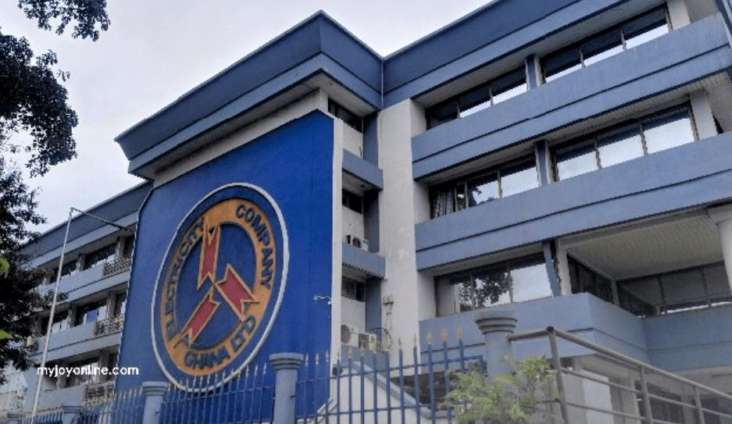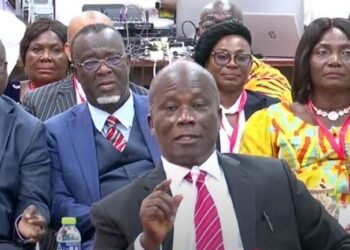Legal scholar Professor Stephen Kwaku Asare has described the recent power theft scandal at the upscale Rehoboth Estate not as a desperate act of survival, but as a deliberate and calculated defiance of the law.
The incident, which saw the Electricity Company of Ghana (ECG) disconnect the estate for illegal power connections, has been widely condemned as a case of elite impunity.
According to Prof. Asare, what occurred at Rehoboth was not a mere oversight or mistake, but “a deliberate bypassing of national infrastructure by those who ought to know better.”
Prof.Asare characterized the incident as a bold display of criminal behavior by individuals in privileged positions, insisting that it warrants serious consequences.
He stressed that the situation was entirely avoidable and that only strict punitive action would be an appropriate response.
In his view, the scandal reflects a deeply troubling trend: a coordinated operation that betrays either gross negligence or outright criminal intent.
“This is not some backstreet infraction by a desperate individual. It is a large-scale, coordinated operation involving engineers, contractors, and corporate executives acting with either shocking negligence or criminal intent.”
Professor Stephen Kwaku Asare
The legal expert said it was alarming that a private estate could “systematically bypass the law” without detection, raising questions about regulatory oversight and potential institutional collusion.
Meanwhile, the public’s frustration has intensified over what many see as selective enforcement of the law.
Prof. Asare pointed to the recent sentencing of a man in Tamale for illegal connection as a striking example of the double standard in the treatment of offenders.

“The Tamale District Court 1 recently sentenced Wahab Shiraz to: 6 months in jail with hard labour; a fine of ₵6,000 (500 penalty units); restitution of ₵10,096.55 to NEDCo. Failure to pay would attract 7 more months in jail—13 months total.”
Professor Stephen Kwaku Asare
Accordingly, he pointed out that while one person was imprisoned for a single infraction, the Rehoboth case involves approximately 100 homes, representing a far more serious and large-scale violation.
He emphasized the need for consistent application of justice, warning against a system that penalizes the poor while shielding the powerful.
According to him, this was not a case of oversight or desperation but a deliberate act of mass noncompliance by individuals who had every means to follow the law but deliberately chose not to.
Professor Asare further noted that the implications of such acts go well beyond stolen electricity.
He argued that the scheme has compromised the credibility of the Electricity Company of Ghana (ECG), fostered a culture of selective enforcement, and unfairly shifted the financial burden onto law-abiding consumers through inflated tariffs.
Power Theft Triggers Reform Push
Furthermore, Prof. Kwaku Asare laid out a detailed list of urgent measures to ensure such incidents are not repeated.
He stressed the importance of full criminal accountability, insisting that those behind the Rehoboth power theft—particularly directors and responsible officers—should face legal action.

He also called for substantial penalties rather than token fines and demanded the recovery of all stolen funds.
In addition, he recommended publicly exposing those involved and barring the estate from participating in future development projects.
He further urged that regulatory authorities conduct comprehensive audits of all existing and past projects linked to the estate, alongside a range of broader regulatory reforms aimed at tightening oversight and enforcement.
“Mandatory stage-by-stage inspections—ECG and relevant authorities must inspect developments at the foundation, wiring, and pre-occupancy stages. No connection should be approved without verified compliance.
“Lawful and documented utility connections; responsibility for their contractors’ conduct; personal liability for breaches; construction of access roads within and around their subdivisions.”
Professor Stephen Kwaku Asare
Among the critical reforms proposed was the need to link utility clearance directly to the issuance of occupancy permits.
Prof.Asare recommended that local authorities, including municipal and district assemblies, should not grant occupancy approval unless utility providers like ECG and GWCL have verified and endorsed all related installations.
He also pushed for ECG to launch a comprehensive national review of all ongoing real estate developments.

According to him, a nationwide audit is essential to uncover and prevent similar illegal electricity connection schemes from taking root in other housing estates.
For Prof. Asare, this power theft case has moved beyond the question of electricity bills—it’s now about public trust, the rule of law, and fairness.
“Rehoboth Estate must not be insulated by its status. On the contrary, its prominence demands greater scrutiny and stricter accountability. Let this be the turning point. Let the law ring out clearly: Whether kiosk or estate, illegal connections will be punished—severely and equally.”
Professor Stephen Kwaku Asare
He ended his remarks with a strong appeal for decisive legal action, urging the Attorney-General to take over the case without delay and place it among the top prosecutorial priorities.
He emphasized that the issue at hand goes beyond electricity theft—it strikes at the heart of public trust, the credibility of institutions, and the fair enforcement of the law across all levels of society.
READ ALSO: Fitch Upgrades Ghana to Stable ‘B’- Signalling Strong Recovery




















